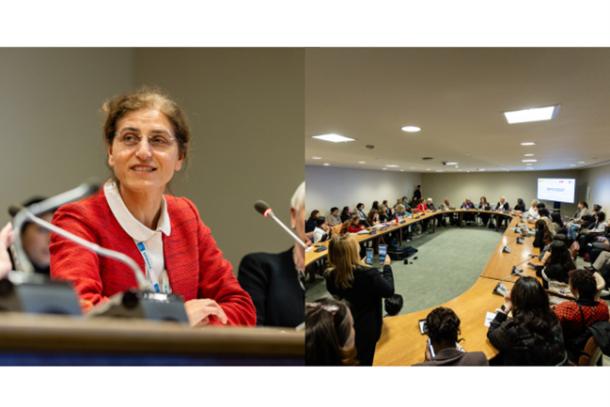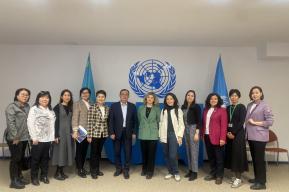Article
CSW68: Breaking the Lens - Launching of the First Global Network of Women of Film and Audiovisual Media

Co-organized by Permanent Mission of Spain at United Nations, CIMA Asociación de Mujeres Cineastas y Medios Audiovisuales, UN Women National Committee of Spain, UN Women National Committee of Australia, and Spain Film Commission, the event set the stage for an international collaboration aimed at accelerating gender equality and integrating a gender perspective in financing within the film and audiovisual sectors.
Panelists delved into the evolving landscape of the film and audiovisual industries, which stand as one of the globe’s most rapidly expanding sectors. The discussions highlighted the industry's immense potential to influence societal norms and contribute to sustainable development through cultural expression.
Despite the sector’s growth and influence, challenges persist, particularly in recognizing and leveraging women’s roles within it. The conversation brought to light several trends and challenges, including the disproportionate representation of women in roles of less visibility and authority, the hurdles women face in accessing funding, and the need for a concerted effort to ensure women's voices and stories are equally valued and recognized in the industry.
“Cinema provides a testimony to our social, cultural and linguistic diversity as well as an outlet for creativity and imagination; but its potential is impoverished by the drought of gender inequality in the film sector. This is why initiative such as the global network launched today are key and timely to advance.”
The representative of UNESCO, Ms. Lily Gray, provided invaluable insights into the findings of UNESCO reports on gender and creativity. These findings underscored the lack of consistent research and data on gender disparities, the absence of gender consideration in monitoring mechanisms and impact assessments, and the insufficient integration of gender perspectives in cultural policies and decision-making processes.
Ms. Gray further outlined UNESCO’s approach to addressing these challenges and highlighted the Organization’s commitment to promoting gender equality through various programs and partnerships, including the UNESCO-Nara Film Residency for young women African filmmakers and collaboration with the Walt Disney Company to support the Women in Animation’s “Stories x Women” program. These efforts reflect UNESCO's strategic vision to not only spotlight the issues but also to spearhead tangible actions that advance gender equality in the film and audiovisual sectors, ensuring a more inclusive and equitable industry landscape.








